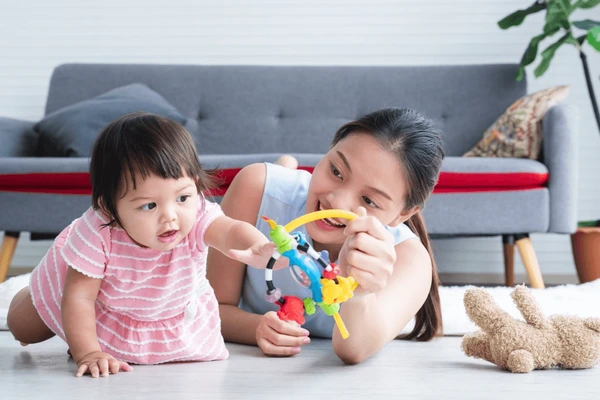Parenting is never a one-size-fits-all journey, especially for Asian families raising children in America. The unique blend of cultural expectations and societal norms often leaves parents balancing between preserving traditions and embracing new values. Amidst this balancing act, one question lingers: how do we set house rules that guide our children without overwhelming them?
The Essential Role of Discipline in Parenting among Asian Families in America
Growing up in an Asian household often means being shaped by discipline, a cornerstone of traditional parenting that emphasizes structure and responsibility.
Discipline isn’t merely about setting rules; it’s about fostering character and teaching children the values that equip them for life.
As Asian parents raising children in America, we must balance our cultural roots with the unique challenges of parenting in a multicultural society. Let’s explore why discipline is crucial, how it affects children, and how we can adapt it to nurture their growth without stifling their individuality.
Parenting across cultures often reflects deeply held values, and the contrast between Asian and American styles is no exception. Growing up in an Asian household, children are often surrounded by values like piety, respect for elders, and strong family cohesion. In contrast, American parenting emphasizes independence, open communication, and nurturing individuality.
Take the idea of respect for elders, for example.
In many Asian families, this respect is ingrained through clear rules and hierarchies. However, these expectations can feel outdated to teens growing up in America, where independence and free expression are encouraged.
One way to bridge this gap is by sharing personal stories. Tell your kids about the lessons you learned from their grandparents and great-grandparents, and how their wisdom shaped your character or family traditions. Share your stories, but avoid teaching or commanding your children to emulate you.
Alongside traditional Asian tales, which often carry direct messages about the rewards of being a good child, your personal experiences can show them that good behavior is always recognized and appreciated.
Why Discipline Matters in Parenting
Discipline provides the foundation for stability and growth in a family. When children understand their boundaries, they feel secure and learn to manage their responsibilities. This structure is especially valuable during formative years when habits and character traits are being shaped.
In traditional Asian parenting, discipline often carries cultural values such as respect for elders, perseverance, and community awareness. These values have empowered many generations to succeed academically, professionally, and socially. Discipline teaches children that effort leads to achievement, and clear boundaries guide them toward making responsible choices.
However, discipline also needs to evolve with the times. In America’s individualistic society, where freedom and personal expression are emphasized, rigid and authoritarian approaches may feel out of place. The challenge lies in maintaining the core principles of discipline while infusing them with understanding and flexibility.
Understanding the Asian Family Landscape in America
Asian families in America bring with them a rich cultural heritage but also face unique challenges. According to recent data, 63% of Asian-American children live in households with both parents, reflecting the community’s emphasis on family unity. Education and discipline rank as top priorities, with parents often viewing academic success as a pathway to stability and respect in American society.
At the same time, many Asian parents struggle to balance traditional values with the realities of raising kids in a multicultural environment. Communication barriers are a recurring challenge, with studies showing that a significant percentage of Asian-American teens feel misunderstood by their parents.
It’s crucial for parents to remember they’re not alone in navigating these complexities. Countless families are working to integrate cultural pride with modern parenting approaches. Sharing experiences within the community or seeking support from resources tailored to Asian-American families can provide encouragement and practical guidance.
The Double-Edged Sword of Discipline
From a child’s perspective, discipline can be both a gift and a challenge.
On the positive side, discipline offers direction. Children often thrive when there are clear rules that provide structure and accountability.
For example, a fixed bedtime routine or assigned household chores instills a sense of responsibility. Many children even associate discipline with love, an unspoken message that their parents care enough to guide them.
On the other hand, discipline can become a source of tension if it feels overwhelming. Rigid rules, enforced without explanation, can make children feel controlled or undervalued. Teenagers, in particular, may rebel against what they see as outdated expectations, creating a rift in the parent-child relationship.
Parents must understand that discipline’s effectiveness depends on how it’s implemented. A rigid approach may work for one child but alienate another. Listening, adapting, and explaining are key to ensuring that rules serve their purpose without becoming a burden.
How to Make Discipline a Positive Force in the Family
Discipline should not feel like a punishment; it should feel like guidance. Here are some ways to transform discipline into a positive, empowering experience
Discipline shouldn’t be about imposing rules without context.
Instead, parents need to understand their child’s feelings and perspectives. Tailor expectations and rules based on their age and personality so they feel respected and empowered. For example, as your child enters their teenage years, a time filled with curiosity and impulsiveness, strictly forbidding them from befriending someone you disapprove of may only worsen the situation. Instead, take the time to listen. Ask why they value that friendship or invite the friend for dinner a few times. As an observant parent, especially in an Asian household, you’ll likely pick up on key traits and guide your child effectively. Most importantly, teens at this stage crave your understanding, not just your authority.
Explain the Reasons Behind Rules.
Children are more likely to follow rules when they understand why they’re necessary. For instance, instead of saying, “Don’t watch TV too much,” explain how excessive screen time can affect their focus or sleep. Share why a balanced meal matters more than just eating meat or why a clean room contributes to a clear mind. Kids are like mini versions of their parents; once they grasp the reasons, they’ll likely internalize these habits, becoming better versions of you in the future.
Reward and Discipline Fairly
Balance is key. Just as mistakes have consequences, good actions should be celebrated. I still remember the small bag of dried plums my mom bought me from a school vendor as a reward for scoring high on my final exams. On the flip side, I also recall the time my dad firmly corrected me for insisting on tagging along to work with my mom. These moments stayed with me because they were fair and consistent. Children’s memories are a gift, and years later, they’ll recognize your discipline as a precious foundation for their growth.
Practical Discipline Strategies for Different Ages
For Younger Kids (Infants to Pre-Teens)
Young children learn through repetition and routine. Consider these approaches:
- Set a fixed bedtime to establish daily rhythms.
- Teach responsibility by encouraging them to tidy up after playtime.
- Use a “Reward Jar”: Find a small, transparent jar and let your child earn tokens for good behavior. Instead of money, use charms, stickers, or other exciting items. At the end of the month, exchange these tokens for a gift from their wishlist. Just remember to distinguish between necessary tasks (like cleaning up toys, which don’t earn rewards) and acts of kindness (like helping a sibling, which do).
For Teens with Their Own Personalities
As teens grow, their schedules and independence expand. Adjust discipline to reflect this:
- Curfews: Collaborate on setting reasonable curfews based on their workload, extracurricular activities, and social needs.
- Social Media and Phone Use: Instead of banning devices outright, discuss why limits are essential. For example, establish “no phones during meals” to encourage connection or “phones only after homework” to prioritize responsibilities. Be a sounding board for their online concerns so they feel safe coming to you instead of turning to the internet for answers.
- Family Involvement: Encourage teens to participate in family planning, such as dividing household chores or preparing meals. This helps them feel valued and builds their sense of responsibility.
Scenarios and Solutions for Common Challenges
When Kids Resist Discipline
Resistance to discipline is inevitable at any age, but the approach should vary depending on the child’s developmental stage.
- For Young Children (Under Teens):
Younger kids often push boundaries to test their limits. For example, if your child refuses to clean up their toys, explain why tidiness matters and offer a small incentive, like extra playtime, for completing the task. Use consistent reminders and positive reinforcement to build habits over time.
- For Teens:
Teens may rebel against curfews or other rules, claiming they’re too restrictive. Rather than enforcing rules rigidly, open a dialogue. Explain your concerns: “I want you home by 9 PM for your safety.” Then observe their behavior. If they consistently follow the rule, consider adjusting it to show mutual trust.
- For Young Adults (Over 20):
Even as your children gain independence, discipline remains essential, though it shifts toward guidance rather than enforcement. If your adult child breaks a family rule, focus on open communication rather than punishment. Discuss how their actions impact the family and work together to find solutions that respect everyone’s boundaries.
If Your Teen Breaks the Rules
Every parent with a teenager has moments of frustration and heartache. This stage of life is when children begin to shape their identities, and they no longer follow your guidance as obediently as they did when they were little. At this age, teens often challenge us with questions like, “Why do I have to do that?” They may resist even the most well-intentioned requests, pushing back against rules or advice they don’t like, no matter how much it’s for their own good.
Imagine discovering your teen has broken a curfew repeatedly. Instead of reacting with anger, approach the situation calmly.
- First, Listen: Ask why they felt the need to break the rule. Sometimes, teens act out because they feel unheard or stressed.
- Reinforce Boundaries: Make it clear that breaking rules has consequences, like temporarily losing privileges such as screen time or outings with friends.
- Build a Path to Trust: Let your teen know they can regain your trust by demonstrating responsibility, like adhering to curfews or completing tasks without reminders.
For younger kids, breaking a rule might involve something smaller, like sneaking extra screen time. Address the behavior immediately by explaining why the rule exists. For young adults, a broken rule could stem from miscommunication, such as missing a family dinner. In this case, focus on setting clear expectations for the future while respecting their independence.
Discipline works best when paired with empathy and understanding, ensuring that rules feel like a shared effort rather than a one-sided directive.
Suggest Modern Tools for Discipline: Technology as Your Ally
Parenting in the digital age doesn’t mean abandoning tradition—it means evolving with it. Modern apps and tools can help Asian parents maintain discipline in ways that feel less rigid and more engaging for their kids.
Award and Reminder Apps
Platforms like Habitica, OurHome, and Zingo transform household chores into a game. Kids earn points for completing tasks, which they can redeem for rewards like extra screen time or family activities.
Time Management Tools
Apps like Google Calendar, Cozi, and Pocket Points help organize homework, chores, or curfews. These tools make discipline a collaborative effort focused on time management rather than rigid control.
Screen Time Monitoring
Tools like Qustodio, GoGuardian, and Bark allow parents to set limits on screen usage while promoting healthy online habits.
Technology enhances rather than replaces parental involvement. For example, when your teen earns points for completing chores, take time to celebrate their effort. Applause doesn’t always have to be extravagant; it can be a simple “I’m proud of you” or a shared activity, like watching their favorite show together. You could also set up a “family achievement board” where everyone’s accomplishments are celebrated.
Create a tradition of rewarding positive behavior with family outings, such as trying a new restaurant or taking a weekend hike. You can also let your kids choose their reward—a book they’ve been wanting, extra time with friends, or a movie night at home. By making rewards personal and meaningful, you emphasize the value of effort and strengthen your bond.
The Tran Family: Embracing Harmony with Technology
One typical Asian Family in America – the Tran family, recent immigrants from Vietnam living in California, faced the challenge of raising their teens while honoring cultural values. Their children, Mai (16) and An (13), struggled with chores, screen time, and curfews, leading to frustration and arguments. The family felt disconnected and Mr. and Mrs. Tran worried about upholding important values such as responsibility and mutual respect.
Seeking a solution, they tried Habitica, a task app that makes chores fun, and Bark, which helps manage screen time and promote online safety. They set up family accounts and gave kids responsibilities, earning rewards for completed tasks. Bark’s monitoring helped them engage in conversations about online safety.
Within two months, things changed. Mai became more responsible, An’s grades improved, and screen time decreased. Most importantly, their weekly family check-ins became bonding moments. By combining technology with family discussions about responsibility, the Tran family found a way to bridge their culture with modern tools and find a balance between discipline and growth.
A Loving Environment Makes All the Difference
Effective discipline, like a carefully tended family garden, isn’t about rigid rules but about a deep foundation of love and understanding, guiding us to nurture growth. When we lead with empathy, discipline transforms, helping children value guidance and respect their elders, cornerstones of our heritage.
Each child, like a unique bamboo shoot, needs our care to understand their feelings and needs. This approach, in the spirit of filial piety, not only prepares them for success but strengthens our family’s shared qi.
Imagine children who honor our guidance and embrace the values of family and perseverance—a legacy of honoring ancestors. Begin with open conversations, listening with the yi to truly understand. Even small actions, like sharing a meal, done with love, can transform your home. You have the strength to build a culture where discipline and devotion flourish, passed down through generations. It’s a worthwhile journey starting within our family today.
A Glimpse Into My Journey
Growing up, my household was anything but ordinary. My father, a soldier, believed in the power of discipline to mold strong, resilient characters. My mother, a journalist, brought curiosity and creativity to our home. Together, they created a unique dynamic, a blend of structure and understanding that shaped the person I am today.
As an Asian child, I often felt the weight of high expectations. My father’s military background meant rules were non-negotiable. Bedtime was strict, the chores were done promptly, and excuses? Well, they didn’t fly under his watch. And, of course, the importance of education was never understated. I vividly remember mornings that began with perfectly made beds and evenings where schoolwork came before play. These rules taught me responsibility early on, instilling habits that have stayed with me into adulthood.
My mother, on the other hand, introduced a sense of freedom. She believed that discipline needed a companion: encouragement. Amid my structured routine, she would ask about my dreams and gently push me to explore my creative side. Whether it was writing short stories or attempting to draw, her support reminded me that rules weren’t chains, they were tools to build something meaningful.
There were moments I resented the discipline, feeling it stifled my individuality. But looking back, I see how those rules were rooted in love. They created a safety net that allowed me to grow confidently, knowing someone cared enough to guide me firmly but kindly.
This balance of structure and understanding became the foundation of my upbringing. It taught me that discipline, when paired with respect and empathy, can create a nurturing environment where children don’t just follow rules, they thrive within them. And now, as a parent, I strive to pass on this blend of love and discipline, hoping to give my children the same tools that shaped my journey.








